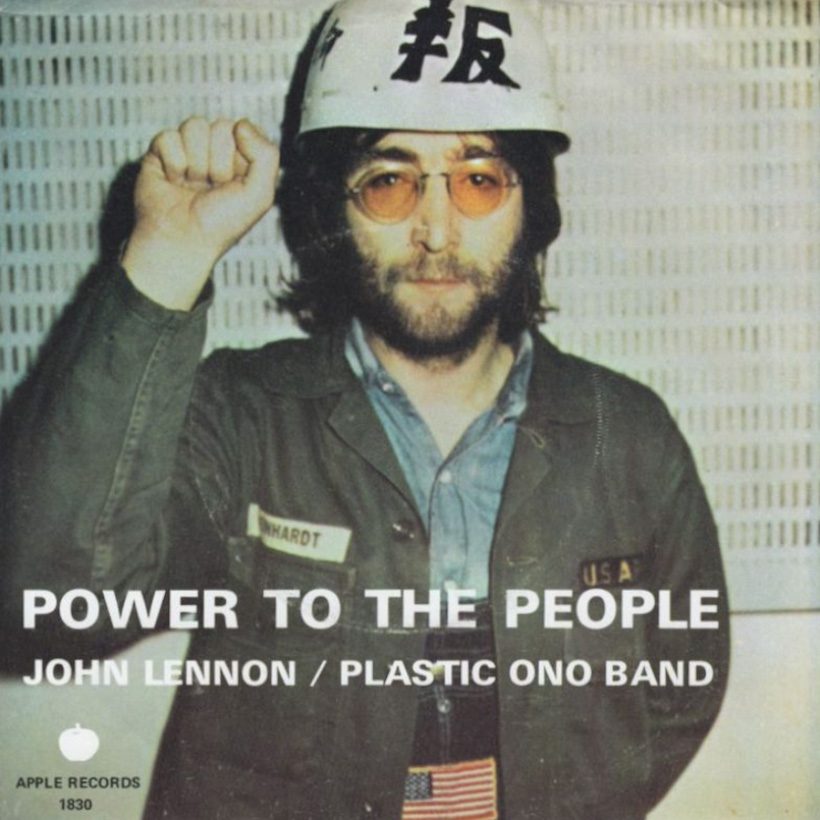‘Power To The People’: John Lennon’s Revolutionary Statement
John Lennon’s fourth single with Plastic Ono Band, ‘Power To The People’ was a call to action that had its roots in the radical politics of the 60s.

John Lennon’s fourth single with the Plastic Ono Band “Power To The People” was a call to action, one that had its roots in the radical politics of the 1960s and its title is one of those expressions that has become part of late 20th-century cultural thinking.
Released on March 12, 1971, the origins of “Power To The People” come from a phrase that was used as a form of rebellion against what US citizens perceived as the oppression by The Establishment. The Black Panthers used the slogan “All Power to the People” to protest the rich, ruling class domination of society, while pro-democracy students used it to protest America’s military campaign in Vietnam.
After John and Yoko returned to the UK from Japan in January 1971, they gave an interview to political activists Tariq Ali and Robin Blackburn of the Marxist newspaper Red Mole. Almost immediately John began writing a song inspired by the interview and the day afterward began work on the song at Ascot Sound Studios. According to John, “I wrote ‘Power to the People’ the same way I wrote ‘Give Peace a Chance,’ as something for the people to sing. I make singles like broadsheets. It was another quickie, done at Ascot.”
“Power To The People” was completed between February 11 and 16 at Abbey Road Studios, during some early work on the album that became Imagine, with a band consisting of Klaus Voormann on bass, Billy Preston on piano and keyboards, Bobby Keys on saxophone and because Ringo was on holiday, Derek and the Dominos’ Jim Gordon stepped in to play drums; among the backing singers were Yoko and Rosetta Hightower.
Originally slated for release on March 5, 1971, in the UK, it got delayed by a week after EMI objected to some of the lyrics to Yoko Ono’s “Open Your Box” that was on the b-side. Rather than re-record it, the song was remixed with heavy echo to cover what the record label felt were the offending lyrics. It entered the UK chart on March 20 and eventually made No.7.
In America, the record, with a different Yoko song, “Touch Me,” came out on March 22 and it made the Hot 100 on April 3 and climbed to No.11 shortly afterward.












